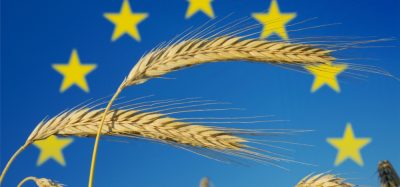I joined the Food Revolution
- Like
- Digg
- Del
- Tumblr
- VKontakte
- Buffer
- Love This
- Odnoklassniki
- Meneame
- Blogger
- Amazon
- Yahoo Mail
- Gmail
- AOL
- Newsvine
- HackerNews
- Evernote
- MySpace
- Mail.ru
- Viadeo
- Line
- Comments
- Yummly
- SMS
- Viber
- Telegram
- Subscribe
- Skype
- Facebook Messenger
- Kakao
- LiveJournal
- Yammer
- Edgar
- Fintel
- Mix
- Instapaper
- Copy Link
Posted: 30 October 2024 | Professor Chris Elliott | No comments yet
Professor Chris Elliott shares valuable insight from the Food Revolution 2024 event in Parma, Italy


I had the great opportunity and pleasure to attend and participate at the first Food Revolution conference, held in Parma, Italy. The location was selected because Parma has a very long and rich connection to food, is one of the world’s best known culinary centres and in fact is designated a UNESCO Creative City of Gastronomy. The city is home to Parmigiano Reggiano cheese and Prosciutto di Parma (Parma ham) and I sampled quite a lot of both during my stay!
There was a lot of information and discussion around the need for substantial changes to our global food system due to the already well-articulated pressures of climate change, the growing global population and rising geopolitical tensions. There are very few who can disagree with these pressures, but how to bring about the changes remains extremely contentious. At the conference there were a lot of presentations about the huge potential of alternative proteins in solving many of these challenges. Cell cultured meats, 3D printing of food and large-scale fermentation were all well represented, often by food-systems-focused NGOs and start-up companies as well as by a number of academics.
Again, I’ve heard quite a bit about all of these previously but there was some new information presented which I found very interesting. In particular, I found out that very long and tough regulatory processes exist in Europe regarding ‘novel foods’ to ensure they are safe to eat. As a food safety practitioner, I found this quite reassuring, and I think in equal measures frustrating for the entrepreneurs who want to drive change through innovation in how our food is produced.
Novel Foods, Farming, and the Funding Challenge
But it was not all about finding novel ways to eat less meat. The important roles of regenerative and organic farming, the need for greater transparency, the future role of digital technologies and AI were included in the discussions and again I picked up a lot of valuable insights. It seemed that there was, and still is, a lot of food systems research funding available, particularly through the EU Horizon Europe programme. This was very welcome news. In contrast we were told by one NGO, The Good Food Institute, that overall, there is a substantial lack of funding from governments and businesses to bring about the much needed changes in food production systems.
Transforming fragmented food systems into sustainable harmony
As a form of a social experiment, I took to Twitter to post several ‘Conclusions’ slides from presenters and asked the same question; ‘Is this the way ahead?’ The tweets were viewed many thousands of times and those who replied expressed quite negative views. I think this is a sign of where we really are in food systems thinking. There are many voices all making noises about the problems and best solutions. I think this can be best described as a cacophony, i.e. a sense of loud, jumbled, and often unpleasant sounds all happening at once. There is a huge need to concert this cacophony into a symphony, i.e. a large, complex musical composition structured in multiple movements, each with a distinct character, tempo, and mood.
There is no single solution, there is no right and wrong answers, but rather a series of well thought through changes that will deliver what is really needed; a sustainable food system that delivers the United Nations Sustainable Development Goal (SDG) number 2, Zero Hunger. But while Goal 2 is the primary food-focused SDG, there are at least 8 of the 17 SDGs involve food directly or indirectly. If nothing else, this underscores the importance and complexity of our food system.
Revolution or roadmap?
Having had some time to reflect on the conference and on what I had heard, I wonder, it is really a food revolution we need or an agreed-upon transitional roadmap? My own thoughts are very much about supporting the latter and doing it one step at a time, addressing one food commodity at a time. As lessons are learned then the pace of change can accelerate. The ancient Chinese philosopher Lao Tzu is recorded as saying, “A journey of a thousand miles begins with a single step.”
Related topics
Alternative Proteins, Food Safety, Proteins & alternative proteins, Quality analysis & quality control (QA/QC), Supply chain, Sustainability









